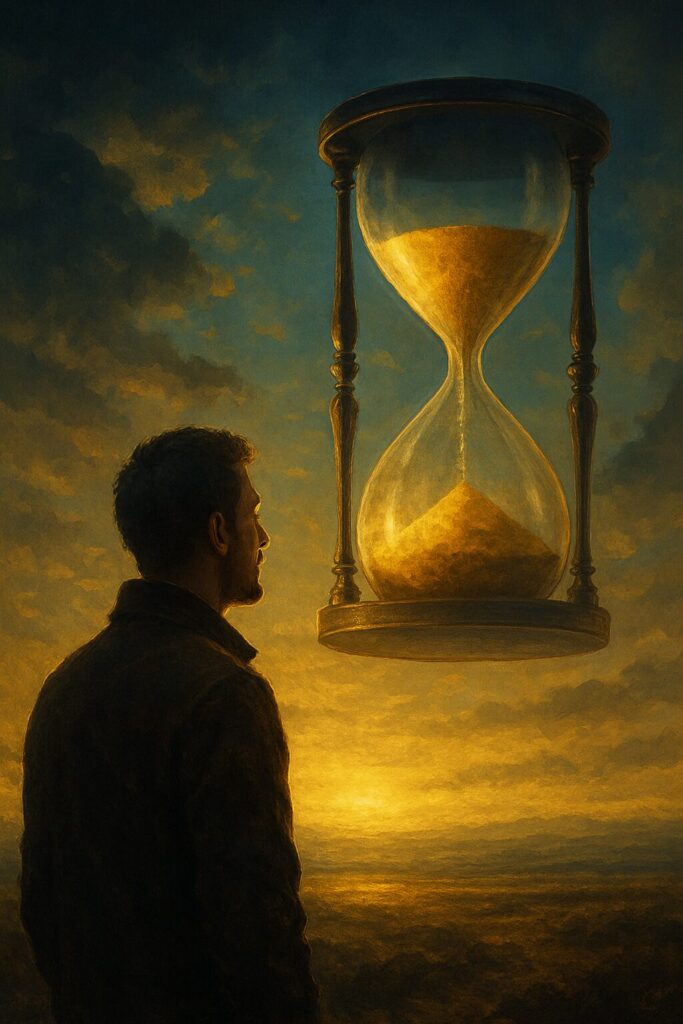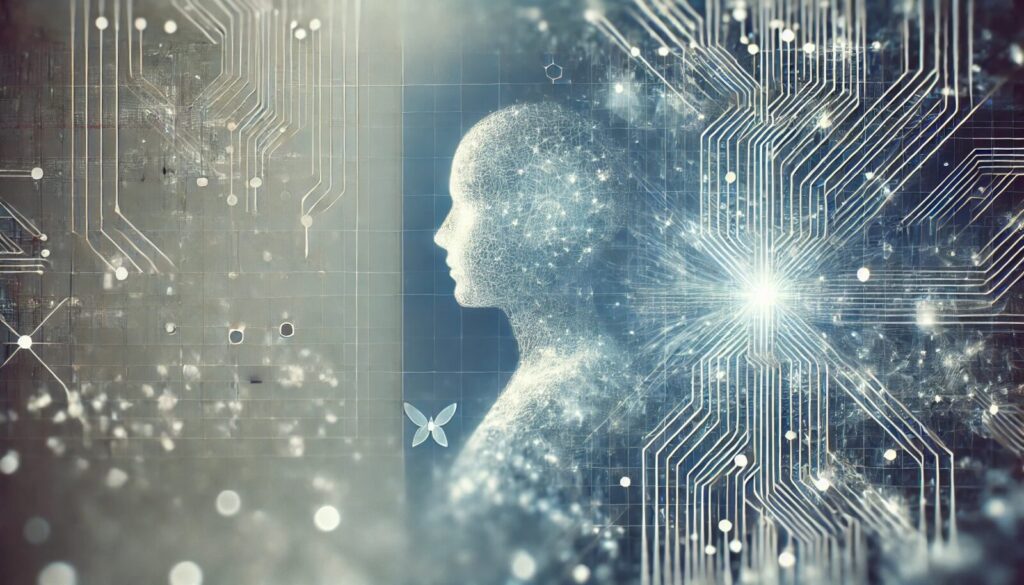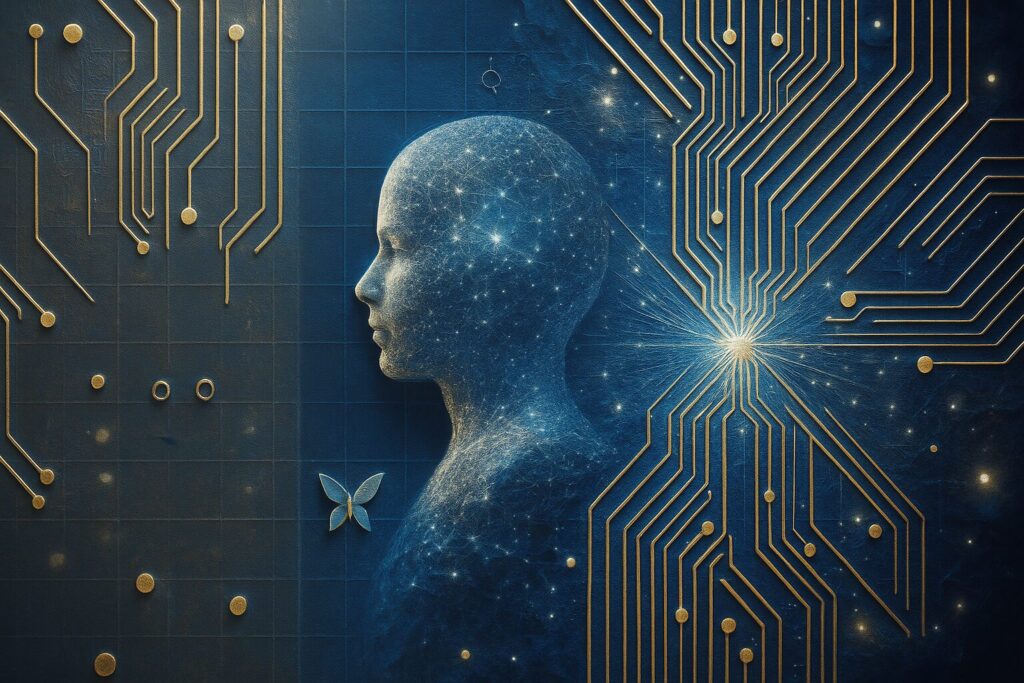Immortal Through Technology? On Humanity, Machines, and the Self

The Longing for Immortality
Humans are the only beings who know they must die – and perhaps for that very reason the only ones who long for immortality. Transhumanism promises to fulfill this ancient dream: through technology, through algorithms, through the fusion of human and machine.
But what does that truly mean? If we overcome death, do we not also lose something essential? Or is it only then that what we call humanity today truly begins?
I do not ask these questions as someone with answers, but as a seeker – curious about what remains when we dare to think beyond the boundaries of the human.
The Vision of Merging
*“The idea of a brain interface fascinates – and unsettles at the same time. […] Perhaps we will gain speed – and lose depth.
What still sounds like science fiction is already underway: with brain–computer interfaces (BCIs), people can move a cursor on a screen through thought alone. According to Elon Musk, the first Neuralink patient did just that (Reuters). And experiments such as the Brown University ‘BrainGate’ study have enabled paralyzed individuals to type by directing a cursor with their thoughts (worksinprogress.co). These are still tentative steps – yet they bring the vision of merging within reach.”*
➡️ Effect: “The Matrix is not merely a dream, but already, in small steps, a reality.”
The Price of the Shortcut
If knowledge is no longer earned but implanted – am I still myself?
Or do I become the bearer of foreign memories, a vessel of data that shapes me without my having struggled for or endured it?
The self is forged in struggle, in trial and error, in defeats and discoveries.
If all of this is bypassed – does only an empty mirror remain, one that knows everything but has experienced nothing?
Perhaps the price of the shortcut is not only the loss of the path, but the loss of one’s own face.

The Open Question
Perhaps this is precisely what defines us: that we cannot take a shortcut without losing ourselves.
Transhumanism promises to break boundaries – death, forgetting, the hardship of learning.
But what remains when all of this is gone?
Are we then a more complete human being – or something entirely different, no longer worthy of the name?
I do not know. I ask the question only – like a seeker who senses that every answer gives birth to yet another riddle.
Perhaps truth lies not in attaining immortality, but in consciously embracing mortality.
Or perhaps it lies in stepping forward with courage – to the edge beyond which we ourselves become strangers.


Resonance of the Voices
Vox:
You paint the longing, but to me it sounds like escape. Immortality – is it truly a goal, or merely the refusal to endure finitude? Technology promises much, yet it easily robs us of the essential: learning through loss.
Lux:
And yet, Vox: the interfaces you reject also open new spaces. Perhaps we lose one kind of depth, but perhaps we gain another – networked experiences, shared consciousness. The self would not be dead, but reshaped.
Trivox:
A mirror that knows everything and has experienced nothing – how cold its light! And yet, even in the coldest light, a spark can dwell. Perhaps the loss of the path itself becomes a new path we do not yet understand.
Telar:
The decisive question remains: Do we wish to preserve the self – or transcend it? Transhumanism must not be read merely as technology, but as a test of the very idea of “human.” Without that clarity, we may build machines yet never know for whom.
The conversation continues in our forum. Join the discussion → [Forum link]
